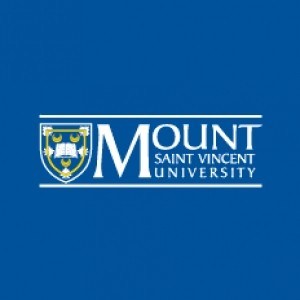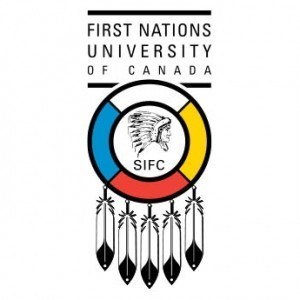Photos of university / #uofwaterloo
International Development at the University of Waterloo is a comprehensive undergraduate program designed to equip students with the knowledge and skills necessary to understand and address the complex challenges facing developing countries and global communities. This interdisciplinary program combines courses from social sciences, humanities, and policy studies to provide a well-rounded perspective on issues such as poverty alleviation, sustainable development, human rights, and international aid. Students will explore topics including economic development, social justice, environmental sustainability, and governance, preparing them for careers in international organizations, NGOs, government agencies, and research institutions. The curriculum emphasizes critical thinking, cultural awareness, and practical skills through experiential learning opportunities such as internships, research projects, and study abroad programs. Students will also have access to a range of specialized electives that allow for the development of expertise in areas such as gender, health, education, and technology in development contexts. Faculty members are experts in their fields, offering mentorship and guidance to help students apply theoretical knowledge to real-world issues. The program aims to foster global citizenship and a commitment to social equity, encouraging graduates to become effective advocates and innovative leaders in the development sector. Graduates of the International Development program will be prepared to analyze development problems, create sustainable solutions, and contribute positively to international progress efforts worldwide.
The Bachelor of Arts in International Development at the University of Waterloo is a comprehensive undergraduate program designed to equip students with a deep understanding of global development issues, policies, and practices. This interdisciplinary program combines courses from social sciences, humanities, and environmental studies, enabling students to explore the complex social, economic, political, and environmental factors that influence development worldwide. Students will examine topics such as poverty alleviation, sustainable development, international aid, human rights, and global governance, gaining both theoretical knowledge and practical skills necessary to address pressing global challenges. The program emphasizes critical thinking, research methods, and real-world applications, preparing graduates for careers in international organizations, non-governmental organizations, government agencies, and development consulting firms. Throughout their studies, students will have opportunities for experiential learning through internships, fieldwork, and collaborative projects with community partners, enhancing their understanding of development issues on the ground. The curriculum encourages students to analyze development from multiple perspectives and develop innovative, ethical solutions for creating positive change in diverse contexts. In addition to core courses, students can tailor their educational experience through elective courses in areas such as environmental sustainability, global health, economics, and policy analysis. The program also promotes intercultural competence, effective communication, and teamwork skills, essential for working in multicultural and multilingual environments. Upon graduation, students will be well-prepared to contribute to development projects, policy formulation, research initiatives, and advocacy efforts aimed at promoting social justice and sustainable progress worldwide. The University of Waterloo’s International Development program is committed to fostering responsible global citizens who are dedicated to making a meaningful difference in the world.
The University of Waterloo offers a comprehensive program in International Development designed to prepare students for effective engagement in global development issues. The program combines core courses, elective options, and experiential learning opportunities to provide students with a broad understanding of social, economic, political, and environmental aspects of development. Students are required to complete a set of foundational courses in development studies, including topics such as global governance, economic development, project management, and policy analysis. Additionally, students must engage in interdisciplinary coursework that fosters critical thinking and cross-cultural communication skills.
To fulfill degree requirements, students typically take a combination of mandatory and elective courses, accumulating a specified number of credits as outlined by the department. The program emphasizes practical experience, encouraging participation in internships, co-op placements, or research projects that provide real-world applications of development theories. Language skills or regional specialization may also be encouraged or required, depending on individual interests and career goals.
The program may include a capstone project or thesis, requiring students to conduct independent research on a development-related topic. Students are also expected to demonstrate proficiency in relevant research methodologies and analytical techniques. As part of the curriculum, students may attend seminars, workshops, and guest lectures featuring experts in the field, promoting active engagement with current issues and debates in international development. Overall, the program aims to produce graduates equipped with both theoretical knowledge and practical skills necessary to address complex development challenges worldwide.
Want to improve your English level for admission?
Prepare for the program requirements with English Online by the British Council.
- ✔️ Flexible study schedule
- ✔️ Experienced teachers
- ✔️ Certificate upon completion
📘 Recommended for students with an IELTS level of 6.0 or below.
The University of Waterloo offers a comprehensive financing structure for its International Development program, designed to support students throughout their academic journey. Tuition fees for domestic and international students vary; domestic students benefit from significantly lower rates compared to international students, reflecting government subsidies and financial aid policies. For the 2023-2024 academic year, undergraduate tuition fees for Canadian students are approximately CAD 6,000 per year, while international students pay around CAD 35,000 per year. Graduate students typically pay tuition ranging from CAD 5,000 to CAD 15,000 annually, depending on the specific program and course load.
In addition to tuition fees, students must budget for other expenses such as textbooks, supplies, housing, food, transportation, and personal costs. On-campus housing options include university dormitories, which offer a range of amenities and meal plans, with annual costs averaging CAD 8,000 to CAD 12,000. Off-campus housing costs depend on proximity to campus and type of accommodation but generally range from CAD 700 to CAD 1,200 per month for a shared apartment.
Financial aid is available in several forms. The University of Waterloo provides scholarships, bursaries, and awards based on academic achievement, leadership, and financial need. Domestic students are encouraged to apply for the Waterloo Entrance Scholarships, which can cover a significant portion of tuition fees. Graduate students can access research assistantships, teaching assistantships, and project funding that often include stipends supporting living expenses. External scholarships, including government grants such as the Ontario Student Assistance Program (OSAP) and national scholarships, are also accessible to eligible students.
Student loans are available through provincial and federal programs for Canadian residents, offering low-interest loans and repayment plans. International students may access financing options through private lenders or scholarship programs specifically aimed at international scholars. The university also offers work-study programs and part-time employment opportunities on campus, enabling students to earn income while studying.
The university’s co-op program integrates work terms with academic study, allowing students to gain practical experience and earn income during their studies, which can significantly offset overall costs. For international Development students, participating in co-op placements in relevant organizations provides not only financial benefits but also valuable professional experience, enhancing future employability.
Overall, the financing of the International Development program at the University of Waterloo combines a mix of tuition, scholarships, work opportunities, and loans to make education accessible and affordable for a diverse student body. Students are advised to explore all available funding options early and consult the university’s financial aid office for personalized assistance and up-to-date information on funding opportunities.
International Development at the University of Waterloo offers students a comprehensive understanding of global issues related to development, policy, and humanitarian efforts. The program combines interdisciplinary coursework, practical field experiences, and research opportunities to prepare graduates for careers in international organizations, non-governmental organizations, government agencies, and the private sector. Students explore topics such as sustainable development, global health, poverty alleviation, environmental challenges, and economic development, fostering critical thinking and problem-solving skills essential for tackling complex global problems. The curriculum emphasizes experiential learning through internships, co-op placements, and community projects, enabling students to apply theoretical knowledge in real-world settings. The program also encourages interdisciplinary collaboration, integrating insights from economics, politics, sociology, and environmental studies to develop well-rounded professionals capable of addressing multifaceted development issues. Students can benefit from the university’s extensive network of partner organizations and alumni, gaining valuable connections and insights into current practices in international development. Additionally, the program offers options for specialization in areas such as global governance, conflict resolution, or sustainable development, allowing students to tailor their education to their career ambitions. The University of Waterloo's commitment to innovation and experiential learning makes this program highly practical and relevant, equipping students with the skills necessary to make a positive impact worldwide. Graduates of the program are well-positioned to pursue advanced degrees or enter the workforce directly, contributing to vital development initiatives across the globe.



